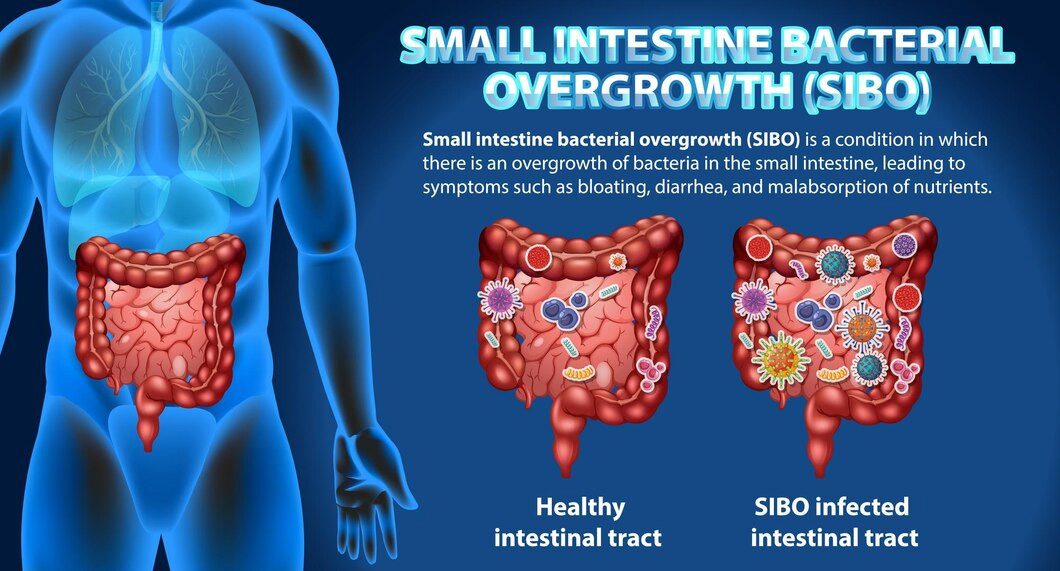-1731303515501.webp)
In response to online body shamers, Only Murders in the Building star Selena Gomez recently revealed another health condition, explaining that it has contributed to her weight gain.
The actor, singer, and entrepreneur recently made an appearance at the American French Film Festival in Los Angeles and was criticised for her looks by trolls on a TikTok video. The 32-year-old reportedly shut down these trolls with a comment now removed, saying, "This makes me sick. I have SIBO in my small intestine."
"I don't care that I don't look like a stick figure. I don't have that body. End of story. No I am NOT a victim. I'm just human," the comment further read, and we couldn't agree more with her.
SIBO, or small intestinal bacterial overgrowth, is a lesser known gastrointestinal (GI) condition, the exact prevalence of which remains unknown. However, estimates reportedly range from 2.5 to 22% globally.
What Is SIBO?

Small intestinal bacterial overgrowth (SIBO) is a GI condition that occurs when excess bacteria builds up in the small intestine. In general, the small intestine normally has relatively few bacteria compared to the large intestine. This is because the small intestine does not have a favourable environment for the bacteria to thrive. So, when there is an overgrowth or too many of the wrong bacteria in the small intestine, it can cause problems with digestion, in addition to some people developing SIBO.
Causes Of SIBO

SIBO can occur due to various factors, including weakened protective mechanisms like gastric acid, bile, peristalsis, and immune function. According to StatPearls Publishing, common causes of SIBO include conditions that affect digestion, motility, and the immune system, such as chronic pancreatitis, Irritable Bowel Syndrome (IBS), and immune deficiencies.
While the exact prevalence of SIBO is unknown, it is estimated to be higher in individuals with conditions like IBS and chronic pancreatitis. SIBO is also more common in older adults and women. In many cases, multiple factors contribute to the development of SIBO.
Understanding the underlying causes of SIBO is crucial for effective diagnosis and treatment. By addressing the specific factors contributing to bacterial overgrowth, healthcare providers can develop personalised treatment plans to alleviate symptoms and improve patient outcomes.
Symptoms Of SIBO

The symptoms of SIBO may differ from person to person, depending on the severity of the condition and whether or not a person has a pre-existing health condition. However, some of the common symptoms of SIBO include:
- Bloating
- Diarrhoea
- Constipation
- Unexplained vitamin deficiencies, especially a vitamin B12 deficiency
- In rare cases, malabsorption
Also Read: Experiencing Diarrhoea And Other Digestive Issues? It Could Be SIBO; Know What It Is
Treatment Options For SIBO

Unfortunately, there is no cure to prevent SIBO from returning; however, the condition can be treated and managed effectively.
Treatment options include one type of antibiotic or a combination to remove the overgrowth, probiotics and faecal microbiota transplants, and a SIBO diet, which includes a low FODMAP diet.
A low-FODMAP diet involves restricting fermentable oligo-, di-, and mono-saccharides and polyols (FODMAPs). The initial phase of the diet involves a strict restriction of FODMAPs for 4–8 weeks.
Conclusion
SIBO may not be a widely known health condition, but it can occur in anyone, at any age. Older adults over 50 and those with pre-existing conditions like IBS should be more careful and must get themselves examined in case of symptoms. There are treatment options to manage the condition, and certain dietary restrictions may also help maintain overall digestive health. It is best to consult a gastroenterologist or a doctor to understand your risk factors, causes, if you have the condition, and treatment options.
Image credit: Instagram/@selenagomez
Also watch this video
Read Next
Knee Pain Holding You Back? Expert Breaks Down Common Conditions, Symptoms, Causes, And Solutions
How we keep this article up to date:
We work with experts and keep a close eye on the latest in health and wellness. Whenever there is a new research or helpful information, we update our articles with accurate and useful advice.
Current Version
